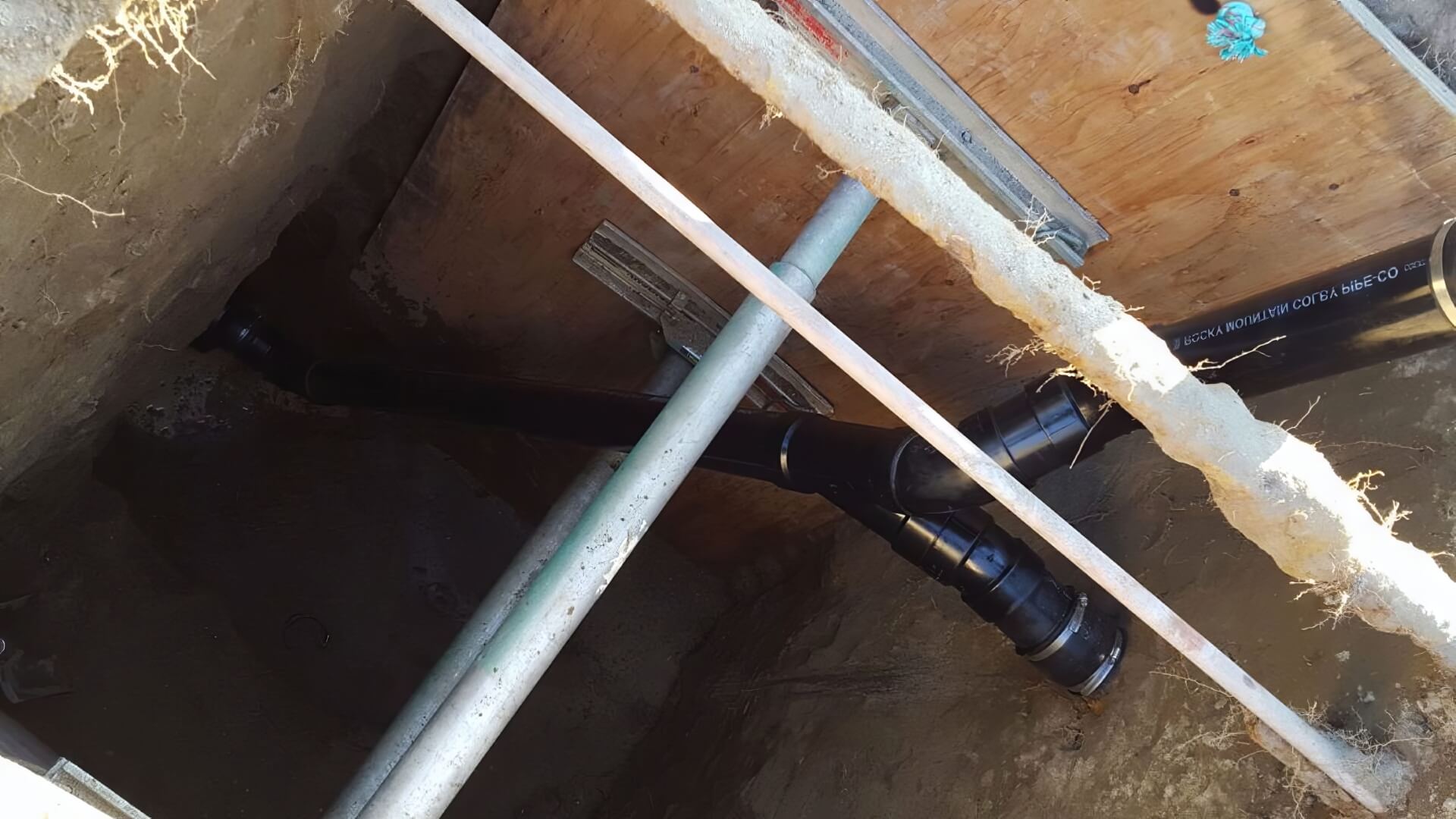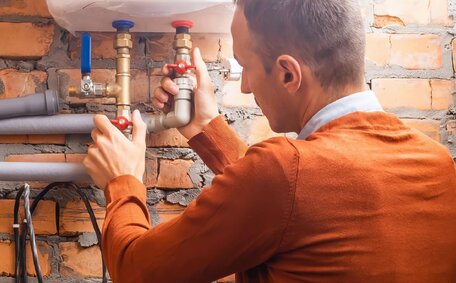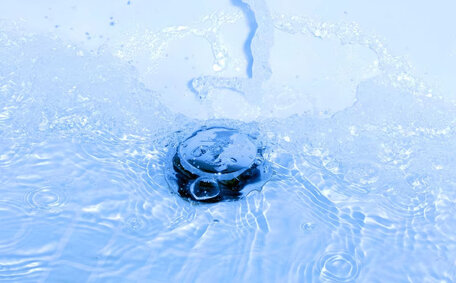Introduction to Causes of Blocked Drains
Blocked drains disrupt daily life for both homeowners and businesses, interfering with plumbing systems particularly in Ryde, Sydney. Substances like hair, food scraps, grease, tree roots and other debris are causes blocked as they can accumulate inside pipes, leading to issues within your plumbing system over time. Over time, these blockages can lead to congested pipes, representing the most common causes of drainage problems in your residence.
At Ryde Plumbing, we understand the primary causes of drain blockages and how to effectively unblock them. We’ll delve into the reasons for blocked drains and offer guidance on DIY solutions, along with advice on when to call in professionals.
In this article, we’ll outline the common causes of blocked drains so you can understand why they happen and how to avoid them.
Keep reading to uncover reasons for poor drainage, recognise signs of blockage, and learn how to maintain an unobstructed water flow.
Grease, Oil and Food Buildup
A particularly worrisome source of clogs is fat washed down the pipes, along with oils, and food remnants, within the confines of your home. In your sink, grease, oil, and food particles can cling to pipe walls, gradually forming a foul-smelling sludge that impedes water flow.
Food remnants such as coffee grounds or pasta are common causes of kitchen sink blockages due to their tendency to accumulate in the pipes. These, combined with other blockage culprits such as hair and soap scum, are resistant to breaking down and often clump together in the pipes.
To avert blockages, refrain from disposing of fat, oil, and food remnants down the sink. Allow cooked oils to solidify before disposing of them in the rubbish bin rather than into the drain. Utilise sink strainers to catch food remnants from dishes, stopping them from entering your drainage system.
If fat washed down or other food debris has already been sluiced into the plumbing, you can use a drain cleaner designed to break down oils and dissolve blockages. Use mild drain cleaners that effectively address blockages without damaging your pipes.
When it comes to resolving a blocked drain your kitchen or bathroom, due to grease, oil, or food, engage a professional plumber. They have the tools and expertise to mechanically clear drains and address the blocked drain in your home effectively.
Accumulation of Hair in Drains
Strands of hair can block your bathroom drain, especially without a strainer in place. Hair is a common cause blocked in drains as it sheds in the shower or finds its way into your bath and can get stuck in the drain. Eventually, loose strands of hair amass in the drain pipes and can cause buildup, creating a dense hair clog.
Hair, in the absence of a drain cover or strainer, can enter pipes and merge with other detritus, leading to blockages. Over time, the accumulation of debris restricts water passage, compromising the drainage system and resulting in significant blockages. An amalgamation of hair with soap residue and hard water minerals can cause blockage that your pipes struggle to overcome.
To prevent hair clogs, install drain covers and solutions like drain covers for every blocked drain in your property and ensure their regular cleaning to uphold your drainage system. Regular monthly use of a drain snake is an efficient way to dislodge blockages due to hair accumulation in your pipes.
Hair accumulation can go unnoticed inside your drains for years, leading to a blocked drain emergency. Have a plumber inspect and clear your drains and showers annually to prevent excessive hair accumulation. They can mechanically eliminate hair, soap residue, and restore proper water flow within your drainage system.
Invasive Tree Roots Damaging Pipes
Tree roots can result in significant plumbing trouble when mature trees are planted too close to your domicile. As trees mature, their roots elongate deeper underground and, due their robust nature, are often capable of provoking complications in your drains, how to fix them becomes the pressing question.
In urban settings such as Ryde, tree roots as well as some other obstacles often infiltrate crevices or junctions in sewer pipes, presenting a challenge of how to resolve these problems effectively. The small roots can gradually swell, exerting significant pressure on the pipes, which can cause them to become compromised. They may ultimately penetrate the pipes, thereby directly causing blockage troubles within your plumbing network.
Tree roots breaching sewer lines let excess soil and roots into your plumbing, exacerbating blockage issues. This leads to recurring drain clogs, which can require professional repair or replacement of affected pipes. Tree root intrusion also causes sewer backups during heavy rain or main line blockages.
Property owners should take into account the location of drainage pipes when landscaping or planting trees. Ensure a safe distance from structures and conduct regular video inspections to spot invasive roots before they damage pipes. Early root cutting maintenance saves money compared to emergency drain repairs.
For properties already experiencing common blocked drains, contact your local Ryde Plumbing team for expert assistance. our team can efficiently clear all your current obstructions and advise solutions to prevent ongoing issues with intrusive root systems.
Flushing Foreign Objects Down Toilets/Sinks
A frequent but avoidable cause of blocked drains is the accidental flushing of unsuitable items down toilets or sinks. Items that often cause blocked drains, which we will discuss how to prevent from entering the drainage system, include:
- Baby wipes, feminine hygiene products, cotton swabs
- Dental floss, condoms, disposable razors
- Paper towels, napkins, tissues
- Kitty litter, aquarium gravel
- Medical waste like syringes or gauze
- Excessive amounts of toilet paper
Despite claims of flushability, many items do not break down and can lodge in bends or corners, causing blockages. Over time, these items travel through the pipes, gathering other debris and forming a mass that obstructs water flow.
It’s crucial to educate everyone in your household about the hazards associated with placing objects down the toilet, which can lead to blocked drains. Installing screens over sink drains also ensures debris should never enter your pipes.
Facilitate the use of lined bins for the disposal of sanitary products, ensuring these items are not flushed down. However they must be cleaned regularly.
For existing blockages caused by foreign objects, consider using drain auger or plumber’s snake to fish them out effectively. But take care not to push objects further into drainage systems. Should you encounter persistent clogs, it’s best to call professional prior to incurring additional pipe damage.
Lack of Preventative Drain Maintenance
Regular drain maintenance is crucial to avoid serious and costly plumbing emergencies. Taking simple preventative steps, such as regularly removing debris that might clog pipes, is vital in preventing plumbing issues.
We counsel homeowners to understand that when it pertains to drains, discerning how to unblock them independently is rewarding and to arrange for professional inspections annually to fix issue before it exacerbates. Plumbers can quickly identify problems such as minute fissures or root invasions early within your drains employing camera technology. Catching problems before complete drainage failure allows less costly repairs.
Moreover, maintaining regular self-maintenance is essential as it’s important to actively partake in between professional drain cleanings. Employ drain strainers and tub shaver attachments to capture hair before it enters the pipes. Running hot water with a mixture of baking soda and vinegar through your system helps maintain clear pipes.
Install durable drain guards or screens, and make sure to cover all drains, inside and out. Such drain devices are designed to intercept foreign materials while still permitting water to flow. Just ensure to frequently clear away debris and other objects from guards diligently.
Don’t procrastinate on drainage maintenance; learn to unblock drains to prevent severe flooding or sewer backups. Preventative care protects your home, health and avoids emergency plumbing costs down the track.
Associated Health Risks of Clogged Drains
Blocked drains and pipes pose significant health risks, requiring immediate attention. Given that water can collect along with other detritus, it forges the perfect conditions for harmful microbes to proliferate, which any drain should aim to avoid. Pests are drawn to blocked drains and play a role in disease transmission.
Stagnant water from drain blockages can quickly harbor pathogenic bacteria such as E. coli, Salmonella, and Legionella. Exposure occurs from direct contact with contaminated water or indirectly through insect bites.
Clogged drains also emit foul odours like hydrogen sulphide gas. Prolonged inhalation of sewer gas can cause nausea, headaches or lung irritation. Methane gas buildup from decaying debris may also leak into households, posing an explosion risk in confined spaces.
Rodents, cockroaches and flies frequently infest the area around blocked drains seeking food and moisture. These vermin and rodent pests are vectors for ailments like Salmonella, dysentery, gastroenteritis viruses, parasitic worms and hepatitis, which can occur in proximity to blocked drains.
Children playing near flooded drains are especially vulnerable to pests coming your way and at a risk of contact with contaminated water or infected pests. Open drainage areas also pose a drowning hazard for small children.
Clearing blockages promptly helps homeowners reduce the risks of bacterial contamination and pest infestations before drains become unmanageable. However, extensive drain clogs with severe flooding requires professional plumbing assistance to safely resolve.
The team at Ryde Plumbing has some of the most advanced equipment to hygienically clear blockages, remove disease-causing bacteria and prevent further pest infestations. We also provide camera drain inspections to examine the underlying condition and uncover some most concerning issues in drains, advising repair options if needed.
Don’t delay - call 1300 349 338 to schedule an appointment if faced with flooded drains, foul odours or pest issues around blocked pipes on your Ryde property.
Do-It-Yourself vs Professional Drain Clearing
When it comes to a blocked drain, some homeowners first try do-it-yourself methods like using a plunger, snaking the drain or using store-bought drain cleaners. Although these techniques might rectify a minor obstruction, typically, drains pipes with significant blockages necessitate professional involvement.
DIY drains clearing has a place for small, accessible clogs and how to approach them.
Pouring boiling water down, combined with baking soda and vinegar, can sometimes struggle to dissolve oil, grease and other debris clogging your drainage system. Using a plastic drain snake to manually fish out hair and gunk works too. However, exercise caution, as manhandling the pipes can difficult the situation by pushing clogs deeper within.
Attempting to dislodge main sewer clogs, solidified grease blockages deep in pipes or substantial tree root intrusions can be risky and cause major pipe damage. These scenarios can prove to be difficult to rectify without professional hydrojet drain cleaning apparatus.
Ryde Plumbing addresses blocked drains how with advanced electric drain machines and high-pressure water jetters. Our CCTV drain cameras can adeptly figure out the exact locations of blockages. We can hydrojet even tough grease or tree root obstructions that DIY methods can’t resolve.
We offer 24/7 emergency plumbing services when drain issues cause flooding or health hazards demanding immediate response. Our skilled team also delivers drain repairs and services inclusive of clearing blocked catch basins and pipe relining, for which we recommend as enduring solutions to persistent blockages.
For professional drain assessments, cleaning and repairs, call Ryde Plumbing on 1300 349 338 or email us to schedule a job.
How to Prevent Future Blocked Drains
Implementing preventative maintenance is the best strategy to steer clear of repeated issues with the drain in your home, alongside wise waste disposal practices.
Install drain covers over all fixtures in your house to catch hair and debris before they make their way into your pipes. Clean these covers regularly. Consider gutter guards to keep leaves and silt from clogging your outside drain.
Don’t pour fats or harsh chemicals down any drains. Allow cooked oils to solidify before disposing in the garbage. Use sink strainers when washing dishes.
Educate children on the responsible use of your toilet, advising them on what not to flush to prevent items from being sent down its pipes accidentally. Provide bathroom bins for hygiene products to prevent them being flushed down toilet. Also, avoid using excessive toilet paper or instead, use small amounts or flushing paper towels.
Perform DIY drain maintenance by pouring hot water down the drain, along with baking soda and vinegar solution into sinks and tub drains monthly. Learn how to unblock your pipes yourself effectively using a plastic drain snake periodically to remove extra hair.
Have professionals hydrojet clean problem drains or use camera inspection annually to identity issues early. Ask them about pipe relining if tree roots are a recurring problem.
With astute vigilance and incremental daily changes around your domicile, you can sidestep the headache of drains blocked. However, Ryde Plumbing offers 24/7 support for any emergency situations requiring immediate assistance.
Contact us online or call 1300 349 338 to prevent costly plumbing disasters in future.






